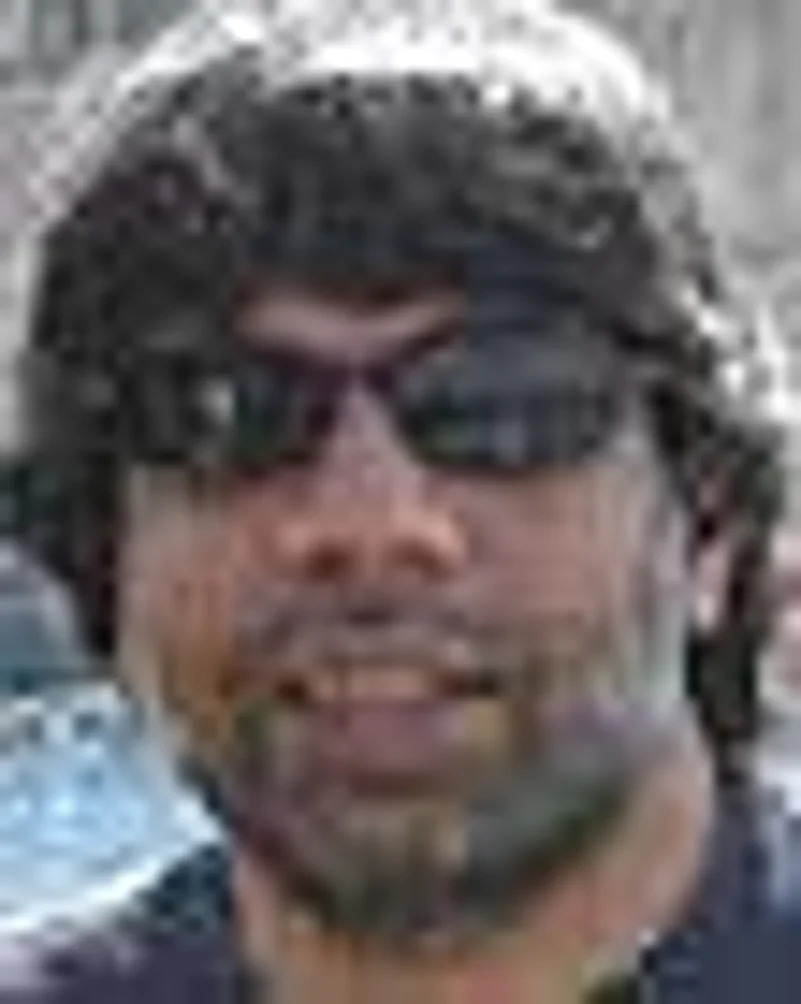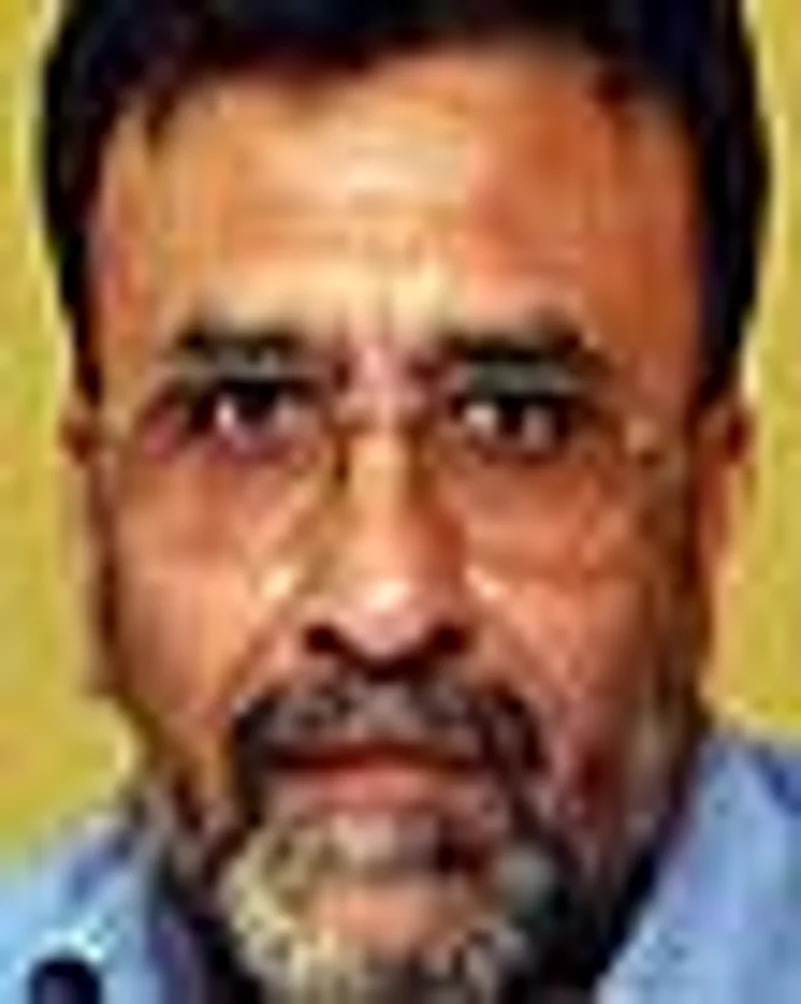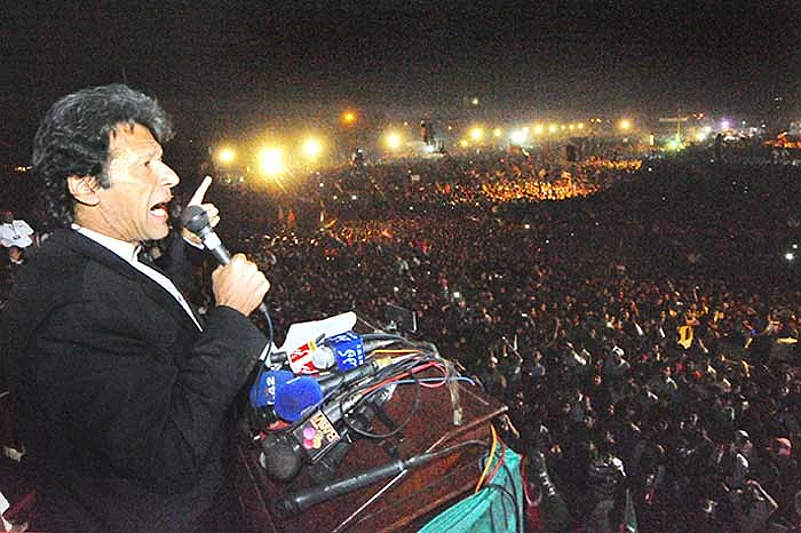From the time of his entry into politics nearly 15 years ago, former cricketer Imran Khan had been dismissed as a man whose conceit made him harbour an exaggerated notion of his popularity as well as underestimate the attributes required to become a politician of reckoning. On Sunday, October 30, though, Pakistan gasped in disbelief as the former cricketer pulled a mammoth crowd—over a lakh—to his political rally held on the ground of Minar-e-Pakistan in Lahore. In it was a message no political party could ignore—Imran Khan had emerged as the Third Force in Pakistan, holding out hope to those weary of mainstream politicians and their corrupt style of governance.
It was a sight bewitching to behold. Wave upon wave of people marching to the Minar, waving the green and red flag, embossed with the crescent and a star, of the Pakistan Tehreek-e-Insaf (PTI). Songs blared from loudspeakers atop cars and buses. The decision of the Punjab government to stop the traffic to the Minar prompted people to alight from vehicles, and dance and clap and sing their way forward. Families with children in tow imparted to the ambience a touch of the carnival. Never before had urban middle-class women been visible in such numbers in any political rally. Reeling under a dengue epidemic, Lahore for those few hours on Sunday seemed to have been infected by the Imran bug. It was difficult to remember the last time Pakistan had been so happy, so hopeful, so enthusiastic.

| “Whether or not people agree with Imran, democracy has won. People of Pakistan are the real stakeholders.” Athar Minallah, Lawyer |

| “A game is afoot between PML-N’s right-wing Punjab votebank and a new right-of-left votebank in urban Punjab.” Nadeem Piracha, Journalist, Dawn |

| “Imran’s speech was pathetic, but people didn’t leave. They want change.... A delayed election will suit Imran.” Nusrat Javed, Political analyst |
The scene on Sunday was perhaps comparable to the rally Benazir Bhutto held in Lahore in 1986. She was then returning from exile, seven years after her father Zulfikar had been hanged, and there was immense public sympathy for her. Benazir, of course, had the advantage of inheriting her father’s legacy. Imran, in contrast, lacks these props. He has only himself to rely upon. Marvelling at the sight of the mammoth crowd, and aptly recognising the rally as the turning point of his political career, Imran, dressed traditionally in shalwar-kameez and a jacket, exulted: “This is not a flood, this is a tsunami. Anyone up against it will be swept away.” The crowd roared in approval. His ex-wife Jemima, present in Pakistan to show solidarity, played upon the famous Obama slogan to tweet, “Yes, we Khan. Everyone is saying that this jalsa is a game-changer.”
His opponents, who had publicly doubted Imran’s ability to pull even 50,000 people, were stunned. Political analyst and TV anchor Nusrat Javed has been a staunch critic of Imran, but the Sunday rally has persuaded him to change his mind about the role the dashing former cricketer could play in Pakistani politics. As Javed told Outlook, “His speech was pathetic and not motivating enough, but important is the fact that people did not leave the ground when he was speaking. The young, the angry and the urbanite want change. I see people like former foreign minister Khurshid Mehmud Kasuri joining him. A delayed election will suit Imran.”
Renowned lawyer Athar Minallah, who was in the vanguard of the movement for reinstating the chief justice, Iftikhar M. Chaudhry, thinks Imran’s rally was testimony to the beauty of democracy. As he told Outlook, “If the process is allowed to continue, the people of Pakistan will set the system right. Whether people agree or disagree with Imran, democracy has won. People are the real stakeholders in this.”
Undoubtedly, Imran the politician has grown in a striking manner. But has his worldview matured and acquired a degree of sophistication? What’s his ideology? Analysts were left clueless as Imran’s speech was admixed with the rhetoric of the left, right, and centre. As was his conduct. As the air reverberated with the azaan from mosques in the vicinity, the music and speeches were stopped. Imran hurried backstage to offer namaz. As soon as he returned, the assembled throng began to rock to the strumming of the country’s youth bands. Imran wears Islam on his kurta sleeve, and yet on Sunday he spoke passionately for Pakistani women. In these days of fundamentalism, his candour is laudable—he said his government would ensure compulsory education and implement inheritance laws for women. For a change, words followed action. Earlier, at a recent All Parties Conference, he was the only politician who was accompanied by a woman—Shirin Mazari, who’s PTI’s defence and foreign advisor—into a room packed with right-wing leaders.
Some were even impressed enough to think Imran displayed the political finesse of Zulfikar Ali Bhutto, who had mastered the art of appealing to different sections of society. Imran spoke out for the hapless Balochs, threatened to blockade cities if the current rulers don’t make their assets public, and harped upon the necessity of respecting the rights of minorities. This Diwali the Hindus were surprised at Imran conveying greetings to them. At the rally, he said, “The PTI believes in forming relationships with all religious groups on the basis of equality. Every citizen should be treated equally despite their ethnic or linguistic origin.”

Side show Jemima Khan attends a ‘grand jirga’ of Pakistani tribals in Islamabad
Imran’s trumpcard is his appeal to the youth, smitten as they always have been by tales of his cricketing prowess, the World Cup victory, his dash and flamboyance, and the clean image he enjoys. With the voting age lowered to 18 years for the next election, he could quite easily reap the youth’s votes, given their burgeoning population. Then again, among all the public figures, he’s seen as a doer who built a state-of-the-art cancer hospital in Lahore and now a world-class university in Mianwala. From schoolboys to socialites, all have contributed to Imran’s endeavour, believing not a rupee of the donations would be siphoned off. It’s this trust Imran hopes to ride on in his second innings as a politician.
The success of Lahore’s Sunday rally was in contrast to the dismal scenario of 1997—it was the year in which Imran’s tryst with the ballot ended in a disastrous defeat. In the 2002 election, the PTI notched a solitary win, from his constituency. What marks this turnaround in political fortune? Imran’s strident criticism of the US and its drone attacks have endeared him to the population. Add to this his diatribe against corrupt politicians and their pro-America leanings. He dwelt on these themes in the rally: “My message to America is that we will have friendship with you, but we will not accept any slavery.” He also declared that the army wouldn’t be allowed to fight fellow Pakistanis, a stance that has brought him close to the right-wing parties, as also earning him the criticism from secular voices.
There are speculations that the establishment has been propping up Imran, as a countervailing force to their earlier favourite, Nawaz Sharif. Such conspiracy theories may explain the crowds at the rally, but not what opinion surveys have been unearthing. A recent Pew survey shows Imran leading all politicians with an approval rating of 68 per cent, up from 52 per cent a year ago. A Gallup Pakistan poll, conducted for the period between January and July 2011, shows Imran and three others—chief justice Chaudhry, Sharif, and Gen Ashfaq Kayani—are the only players people view positively. Yet, surprisingly, even among these four, Imran is the only one whose popularity hasn’t demonstrated a downward trend.

Observers say Imran has made a splash in Punjab, which is electorally the most crucial state, and made inroads in Khyber Pakhtoonkhwa, which is partial to him as his mother came from the famous Burki family. Ditto the Federally Administered Tribal Areas, which witness missile attacks from drones almost on a weekly basis. Imran’s opposition to these attacks echo the deep resentment of the population. A day before the rally, Jemima participated in a jirga of drone survivors in Islamabad, testifying that Imran is also acquiring political skills.
Yet it still remains debatable whether Imran can turn this groundswell of support into votes. As a famous psephologist told Outlook, “The third party forces have never made it to the prime minister’s house in Pakistan. Since 1970, there has been no Third Force. Unless there is a wave and Imran Khan starts sweeping provinces, it would be difficult for him to become the prime minister.” He believes support for Imran is strongest among the middle class.
Political analyst Amir Mateen, however, differs, saying the Sunday rally was almost certainly a game-changer. As Mateen told Outlook, “For the first time, Imran has become an electoral threat. He is today one of the major contestants. His speech and the rock stars at the rally were reminiscent of Zulfikar Bhutto, though the latter had poets to speak before he did. People came to hear Imran. After Bhutto, he is the first one to speak on foreign policy at a jalsa. This is a big change. He also brought a lot of glamour. He’s a completely new phenomenon and people are wondering if he is a leftist or on the extreme right.”
Opinion may vary on Imran’s future performance, but a ringing endorsement of his rising popularity came from China. The Sunday show over, Imran and Mazari flew off to Beijing as guests of the Chinese Communist Party. It’s China’s way of engaging leaders who matter. Dawn’s Nadeem Piracha in his blog spelt out the rally’s impact on Punjab politics: “The game is truly afoot between PML-N’s right-wing votebank in Punjab and a new, if I may say, right-of-left votebank developing in central and northern Punjab’s urban middle and lower-middle-classes.” Right-of-left, what is that? It’s another term for populism, a new nomenclature for Imran’s style of politics.





















